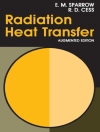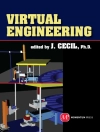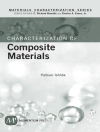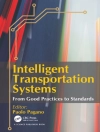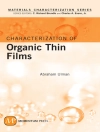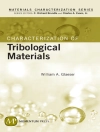This book details the state-of-the-art of research and development in design computing and design cognition. It features more than 35 papers that were presented at the Sixth International Conference on Design Computing and Cognition, DCC’14, held at University College, London, UK.
Inside, readers will find the work of expert researchers and practitioners that explores both advances in theory and application as well as demonstrates the depth and breadth of design computing and design cognition. This interdisciplinary coverage, which includes material from international research groups, examines design synthesis, design cognition, design creativity, design processes, design theory, design grammars, design support and design ideation.
Overall, the papers provide a bridge between design computing and design cognition. The confluence of these two fields continues to build the foundation for further advances and leads to an increased understanding of design as an activity whose influence continues to spread. As a result, the book will be of particular interest to researchers, developers and users of advanced computation in design and those who need to gain a better understanding of designing that can be obtained through empirical studies.
สารบัญ
Preface.- List of Reviewers.- DESIGN SYNTHESIS.- Dynamic Structuring in Cellular Self-Organizing Systems.- Computational Design Synthesis of Aircraft Configurations with Shape Grammars.- Spectral (Re)construction of Urban Street Networks: Generative Design Using Global Information from Structure.- A Spatiotemporal Mereotopology-based Theory for Qualitative Description in Assembly Design and Sequence Planning.- DESIGN COGNITION.- Combination of Eye Tracking and Think-aloud in Engineering Design Research.- An OTSM-TRIZ Based Framework Towards the Computer-aided Identification of Cognitive Processes in Design Protocols.- How Do Interruptions During Designing Affect Design Cognition?.- The Role of Conversation and Critique Within the Architectural Design Process.- DESIGN CREATIVITY.- Mental Models and Creativity in Engineering and Architectural Design Teams.- Brainstorming Versus Design Reasoning: A Theory-Driven Experimental Investigation of Creativity, Feasibility and Value of Ideas.- Modeling Expectation for Evaluating Surprise in Design Creativity.- Computational Design Creativity Evaluation.- DESIGN PROCESSES – 1.- A Multi agent Approach to Evaluating Innovative Component Selections.- A Process Model for Crowd-Sourcing Design: A Case Study in Citizen Science.- Collective Design: Remixing and Visibility.- A Probabilistic Approach to Conceptual Design Support.- DESIGN THEORY.- The Use and Misuse of the Concept of Affordable.- Diagnosing Wicked Problems.- On the Problem of Abduction in Design.- Situating Needs and Requirements in a Multi-Stakeholder Context.- DESIGN GRAMMARS.- Analyzing Generative Design Grammars.- From Shape Rules to Rule Schemata and Back.- The Inference of Generic Housing Rules: A Methodology to Explain and Recreate Palladian Villas, Prairie Houses and Malagueira Houses.- Language of the Rascian School: Analyzing Rascian Church Plans via Parallel Shape Grammar.- Generic Shape Grammars for Mass Customization of Ceramic Tableware.- DESIGNSUPPORT.- Using Text Mining Techniques to Extract Rationale from Existing Documentation.- Learning from Product Users, a Sentiment Rating Algorithm.- Collaborative Evolution of 3D Models.- Data Transformations in Custom Digital Workflows: Property Graphs as a Data Model for User-Defined Mappings.- DESIGN PROCESSES – 2.- Application of Function-Behaviour-Structure Variables for Layout Design.- Ontology-Based Process Modelling for Design.- Studying the Sunk Cost Effects in Engineering Decision Making with Serious Gaming.- Using a JPG Grammar to Explore the Syntax of a Style: An Application on Glenn Murcutt’s Architecture.- DESIGN IDEATION.- A Step Beyond to Overcome Design Fixation: A Design by Analogy Approach.- The Design Study Library: Collecting, Analyzing and Using Case Studies of Biologically Inspired Design.- A Comparison of Mechanical Engineering and Biology Students’ Ideation.- A Structural Equation Modeling Approach to Product Innovation.- First Author Email Address.- Author Index.


